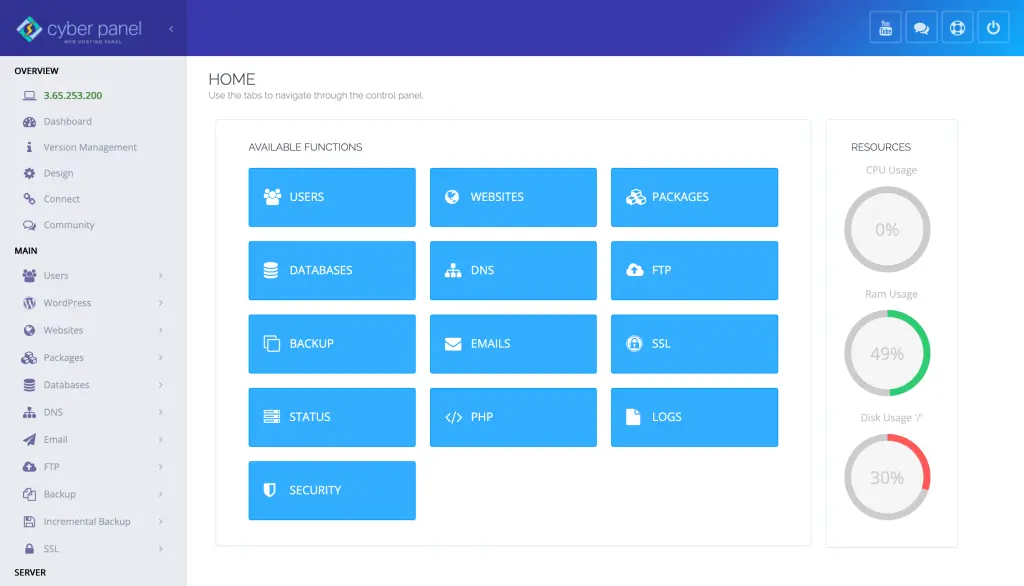If you are using a Debian-based Linux system, command the software effectively. Whether you are installing new applications, searching for updates, or looking for available packages, apt search is a vital command. The APT (Advanced Package Tool) package manager gives users the ability to search through repositories, search for information about certain packages, and even see what’s already installed. But how do you search apt, find certain software, or check if a package is installed?
So, in this guide, we’re going to detail how to search installed apt packages, how apt search package commands work, and how you can make sure you can quickly retrieve software information from any Debian-based system. Learning to search apt is crucial for anybody from novice to advanced Linux users; it improves the workflow and is a positive step towards other package management.
Why Use apt search?
This command is used to search for software packages in Debian repositories. This is especially helpful when:
- You want to add a package, but you aren’t sure of its precise name
- You should check whether a package is available in the repository.
- You want to check whether you already have a package installed in your system.
- You are looking for related packages that have a copy of the same use case.
While dpkg only checks installed packages, this command searches both currently installed and other software available in the repository.
How to Search APT Packages (Step-By-Step Instructions)
To find a package in the repository:
apt search package-nameExample:
Get exclusive access to all things tech-savvy, and be the first to receive
the latest updates directly in your inbox.
apt search apache2Output:
Sorting... Done
Full Text Search... Done
apache2/stable,now 2.4.52-1 amd64 [installed]
Apache HTTP Server
It shows you that apache2 package is available, and is already installed on your system.
Searching for installed APT packages
All apt packages installed, search only:
Those that were installed with apt can be found with:
Example:
RUN apt list --installed | grep nginxThis will filter out just the installed packages related to “nginx.”
Alternatively, you can use:
dpkg -l | grep package-nameExample:
dpkg -l | grep mysqlThis will list a more specific list of installed packages based on the search criteria.
Searching APT and Finding Available Versions
To see all available versions of a package in the repo:

apt-cache policy package-nameExample:
apt-cache madison phpThis displays the available PHP versions in the APT repository.
Another way to check apt for available versions is:
apt list -a package-nameExample:
apt list -a gitThis will provide you with a list of everything available for Git in your repos.
Searching for Packages by Description
You might not remember the exact name of the package but remember what it does. In such cases, use:
apt search keywordExample:
apt search firewallIt will produce a list of packages for firewall management, and you can pick the one you want.
Check For Packages Needing An Upgrade
To see all available packages that can be upgraded, run:
apt list --upgradableThis command returns a list of installed packages with newer versions in the repository.
CyberPanel Role APT Package Management

Direct command line package management gets the job done, but CyberPanel i.e. a robust web hosting control panel makes software installations and updates easier for those who prefer a graphical interface.
APT Packages Management in CyberPanel
- One Click Package Installation: Install important packages through CyberPanel without terminal commands.
- Auto Updates: CyberPanel keeps your Debian system secure by applying updates automatically.
- Firewall & Security Integration: Setting up security rules for packages like fail2ban or iptables.
- Resource Management: Monitor CPU, RAM & disk usage for package-heavy applications
FAQs:
1. What is search APT used for?
It is used to search software packages in the Debian repository. It allows users to find software by a specific name or what the program does, verify that it is available, and review relationships to other packages before installation.
2. Does search APT show installed and available packages?
Yes, search APT returns match for installed and available packages in the repo. But if you want specifically to do an installed packages check you require more filters or other commands.
3. Can APT search only find things in official Debian repositories?
By default, the APT search returns results from the system’s official Debian packages. If you add third-party repositories, however, APT search will include those sources in the results too.
4. What if APT search can not find the package?
Some common reasons why a package may not be found are its name is misspelled, the package list is not updated or it is in a separate repository that is not enabled on the system.
5. Is APT search capable of searching for package descriptions?
Yes, the APT search command enables users to search for packages based on keywords within the package’s descriptions, which can help find software even if you don’t know the full package name.
Final Thoughts!
Apt search is an essential command for any Debian user, whether you’re looking for new software, checking out installed packages, or looking for updates. Searching filter installed apt packages and fetching shows available versions will save time and enrich your Linux experience. Become an Expert in apt search Package Command in a Day If you are running a web server, CyberPanel is simple enough to manage package installations and security configurations.
So get out there and start optimizing that Debian machine of yours!



